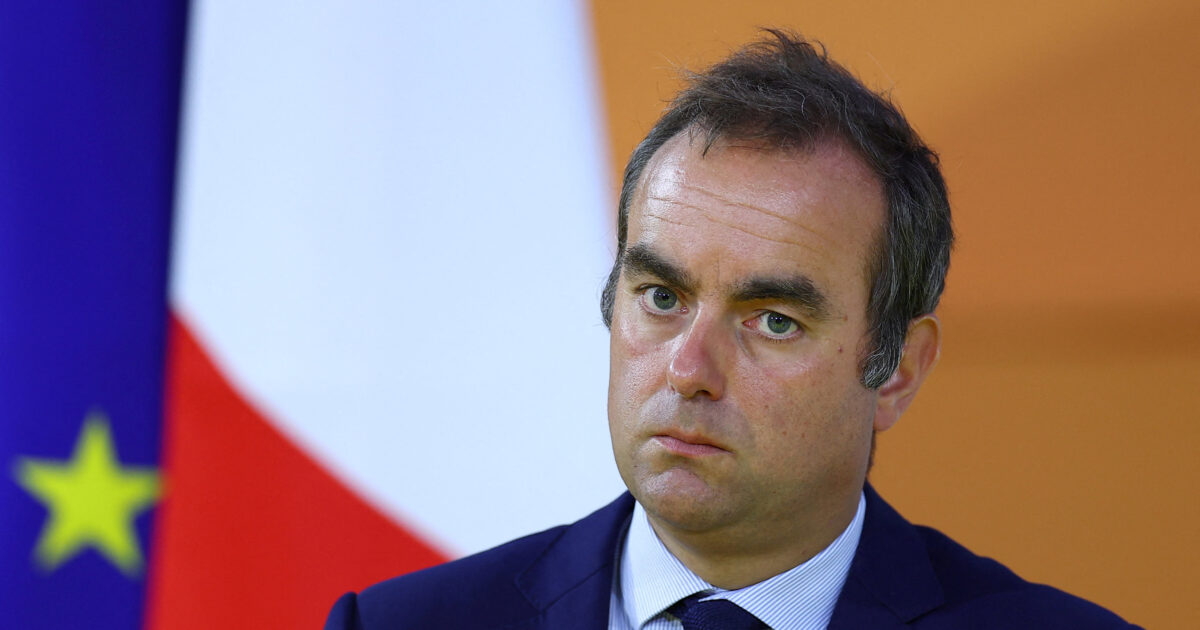With the international marketsbut also her strikers France Sebastian Lekornou will be confronted today, the first day of taking the duties.
Sebastian Lekornou will become Prime Minister of France today (10.9.25) in the midst of mass protests and in view of the opening of European markets (in particular bonds), underlining the difficult task awaiting him as he is trying to promote non -popular reforms.
Lekornou, who served as Minister of Defense in the previous cabinet, will become the fifth prime minister of the country within two years. The last two prime ministers were removed after attempts to vote budgets that would abruptly reduce France’s deficit, the largest in the eurozone.
In addition, a base movement called Bloquons Tout, or “let’s block everything”, organizes protests today that will affect schools, peripheral trains and will cause delays in airlines and some cancellations. The trade unions are planning mass strikes on September 18th on the budget proposals of the previous government, which they describe as austerity measures.
Members from all over the political spectrum rejected the continuation of President Emmanuel Macron’s policies and called for new parliamentary elections. The Lecornos minority government will need implicit support from the left or right to pass a 2026 budget and survive a possible censure proposal.
For every prime minister, things would always be complicated, Gezin Weber, researcher analyst at the German Marshall Fund based in Paris, said in an interview. “We face the same problem as last year, where the opposing parties show little willingness to concessions.”
In a report on how the coalition policy works in some parliamentary democracies, Macron has commissioned Lecornou to “consult political forces in parliament in order to approving a budget”.
Only after that will Lekorou propose the formation of a new government. The current Council of Ministers will continue with service in the meantime.
Lekornou, 39, is the only minister to serve in the government continuously since Macron took over as president in 2017. He assumes the role after MPs from the left to the far right were united to remove François Bairou from the post in a vote of confidence he himself announced to try to gather support for unexpected budget cuts.
Bairou was pushing for a budget that would reduce France’s deficit for 2026 to 4.6% of Economic GDP from 5.4% expected this year.
The France’s Finance bill on 2026 will be one of the first major trials for the upcoming prime minister, who, in order to avoid the same fate as his predecessors, will have to quickly rewrite his budget plans to receive at least indirect support from some of his politicians.
Marin Lepen of the National Alarm wrote in a social media post on Tuesday, September 9, that Macron had made his last attempt to name Lekornou and that the new parliamentary elections were inevitable. The Socialist Party said in a statement that none of its legislators would participate in Macron’s approach.
“This is a slap in the face of parliament,” said Socialist MP Philippe Brown on BFM TV. “This is a slap in the face of voters.”
The current political crisis comes a year after Macron announced early elections that had not failed to consolidate centralized power against the rising far -right. This divided the parliament into three warring blocks: the national alarm, which is the largest single party in the lower parliament, a left bloc and a weakened center that supports Macron.
Since then, the CAC 40 of France – Livmh Moet Hennessy Louis Vuitton SE, Airbus SE and L’Oreal SA – has fallen by 3.2%, compared to a 5.5% profit for the Stoxx Europe 600 and 25% for German Dax, a profit of the Germans.
On Friday, Fitch Ratings has planned to inform her evaluation of France’s credit rating.
The economy has shown stunning resistance to political turmoil in recent months, with indicators showing that processing has overcome a prolonged recession and growth exceeds expectations in the second quarter.
However, A Bank of France survey conducted on Bayrou’s confidence vote announcement showed a sharp increase in uncertainty among the country’s leadership operations, comparable to the rise observed after Macron’s dissolution of Parliament.
Former member of the center -right Republican, LeBornou is one of the most ardent supporters of Macron’s attempts to demonstrate France’s military power, which included an abrupt increase in the budget of the Army and commitments to actively participate in Ukraine protection.
Lecornou is also known for his heartfelt relationships with French far -right personalities, including Lepen. National alarm leaders have not yet given any indication that they will support the upcoming prime minister, but party chairman Jordan Bardella did not immediately reject Lekornou.
“We will judge the new prime minister – without any illusion – based on his actions, his budget policies and whether they meet our red lines,” Bardella wrote on social media.
